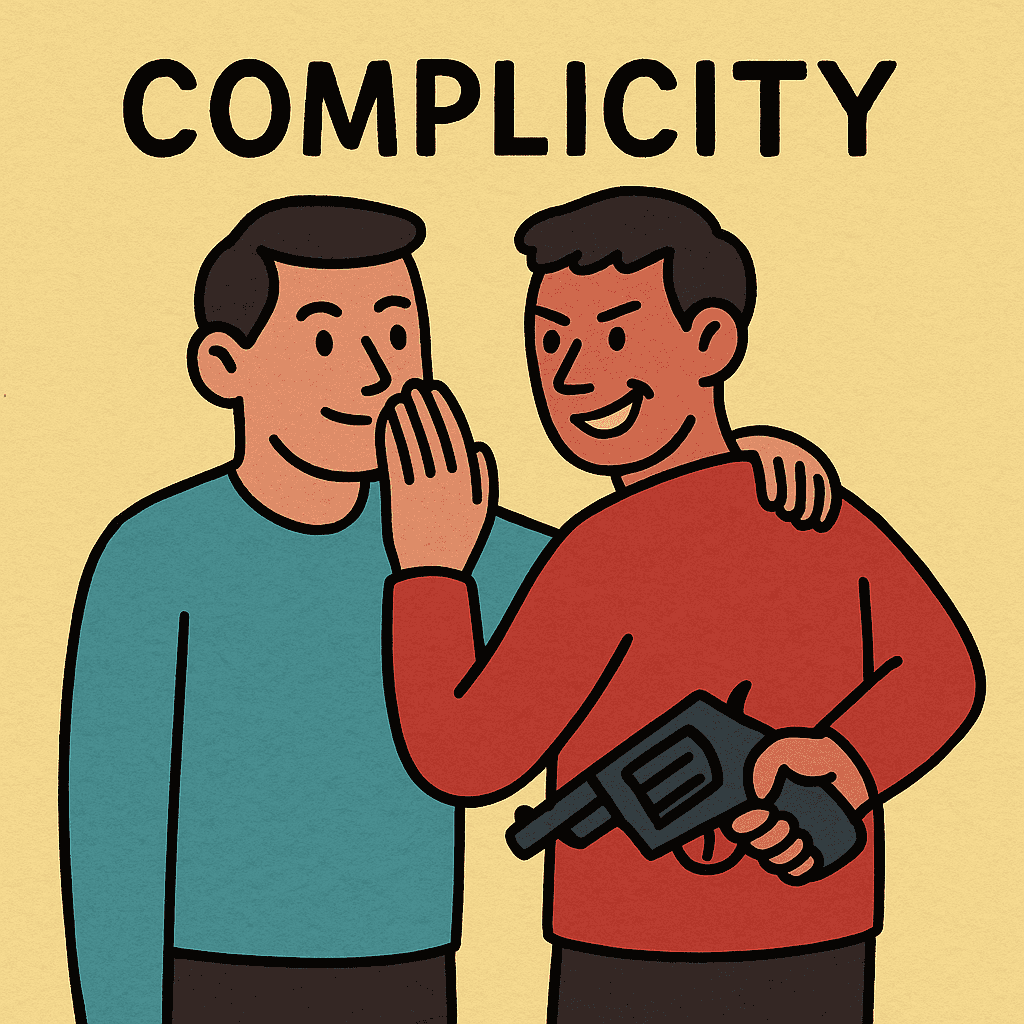Meaning
Complicity (noun) refers to the state of being involved with others in an illegal activity or wrongdoing. It highlights the idea of partnership or participation in guilt.
Grammar and Usage
-
Part of speech: Noun
-
Used in both formal and legal contexts.
-
Typical structure:
- complicity in [crime/act]
- be accused of complicity
Example: He was charged with complicity in the fraud scheme.
Common Phrases
- complicity in a crime
- accused of complicity
- deny complicity
- political complicity
Collocations
- complicity in murder
- complicity with terrorists
- complicity of government officials
- silence implies complicity
Examples
- The suspect was arrested for his complicity in the robbery.
- She denied any complicity in the corruption scandal.
- The court found him guilty of complicity with the smugglers.
- His silence was seen as complicity in the cover-up.
- The report exposed the complicity of officials in the illegal trade.
- Journalists accused the company of complicity in human rights abuses.
- He maintained that he had no complicity in the crime.
Synonyms or Related
- involvement
- collusion
- participation
- conspiracy
- partnership (in wrongdoing)
Antonym
- innocence
- noninvolvement
- disassociation
